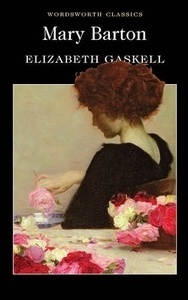Mary Barton

Editorial Wordsworth Classics
Colección Wordsworth Classics, Número 0
Fecha de edición julio 2021 · Edición nº 1
Idioma inglés
EAN 9781840226898
448 páginas
Libro
encuadernado en tapa blanda
Dimensiones 198 mm x 125 mm
Resumen del libro
Elizabeth Gaskell's first novel depicts nothing less than the great clashes between capital and labour, which arose from rapid industrialisation and problems of trade in the mid-nineteenth century. But these clashes are dramatized through personal struggles. John Barton has to reconcile his personal conscience with his socialist duty, risking his life and liberty in the process.
His daughter Mary is caught between two lovers, from opposing classes - worker and manufacturer. And at the heart of the narrative lies a murder which implicates them all. Mary Barton was published in 1848, at a time of great social ferment in Europe, and it reflects its revolutionary moment through an English lens.
Elizabeth Gaskell wrote her first novel about the world in which she lived - Manchester at the height of the industrial revolution. As the wife of a Unitarian minister she was solidly middle-class; but she also had close contact with the working classes around her, sympathised with them, and represented their extreme distresses in her fiction. She is radical in taking on their dialect, imagining the realities of their lives, and placing a working woman at the centre of her fiction.
If to our eyes her vision remains limited, it was an honest vision, for which she was much criticised in her own time, by her own class.
Biografía del autor
Elizabeth Gaskell (Londres, 1810 Alton, Hampshire, 1865). Es una de las escritoras victorianas más relevantes y queridas de Inglaterra. Huérfana de madre desde pequeña, fue a vivir con su tía a Knutsford, una pequeña ciudad rural como la que se describe en este relato, donde tuvo una infancia plácida y feliz. Se casó con un ministro de la capilla unitaria de Cross Street y se mudaron a Manchester. La llegada al norte de Inglaterra, más industrializado, fue un choque muy fuerte para ella, que quiso reflejar en sus obras el impacto del progreso en las tranquilas sociedades rurales de Inglaterra.








